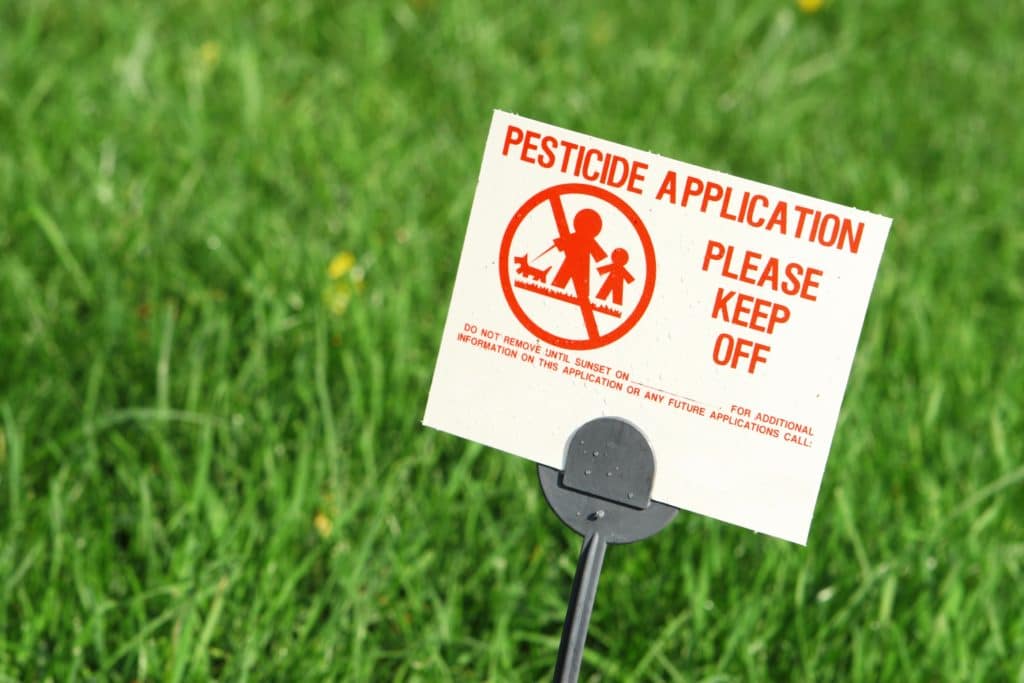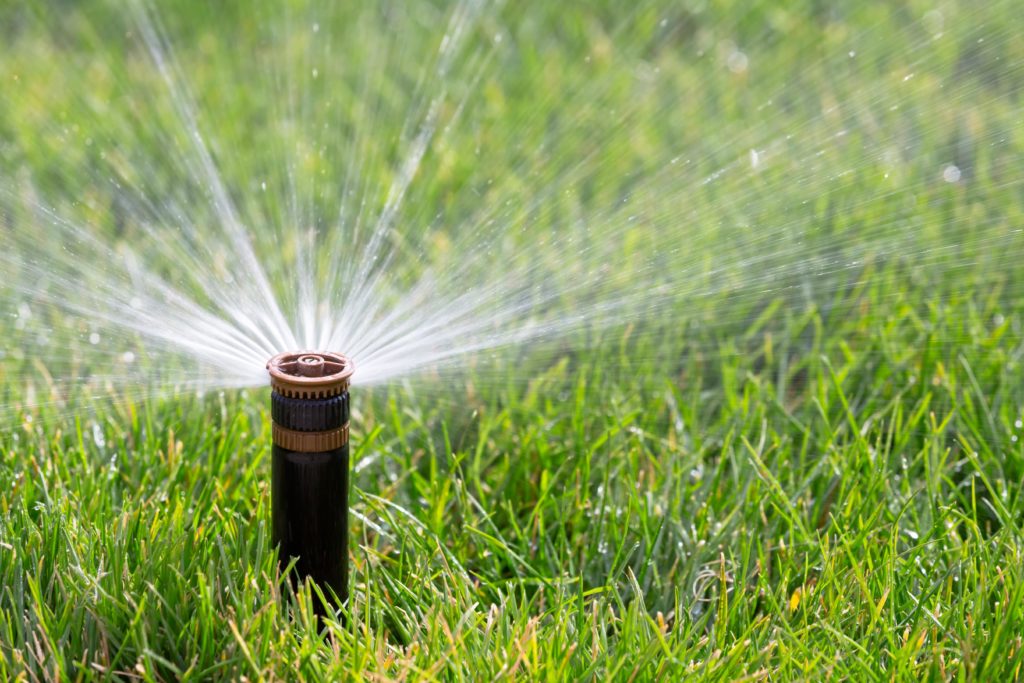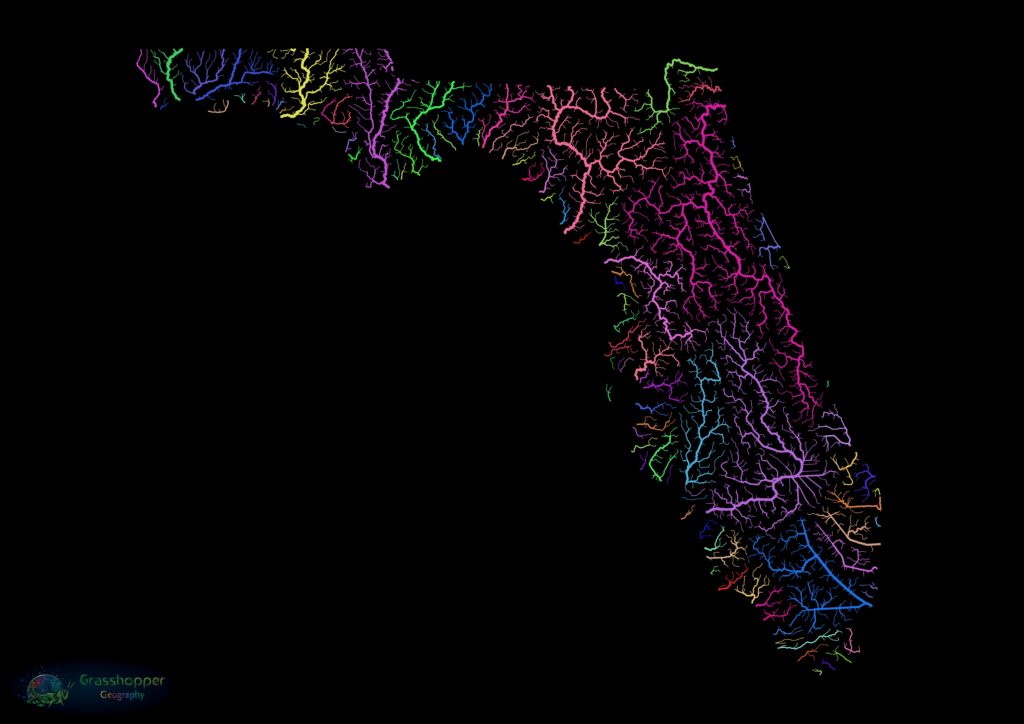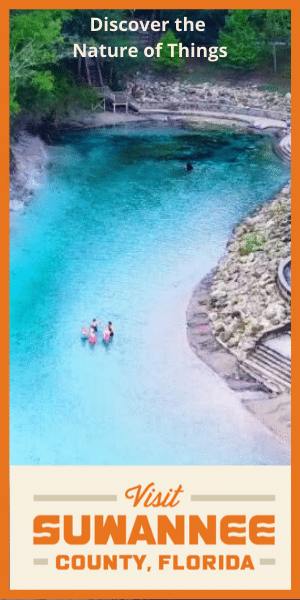Is Florida’s most resource-wasting crop the grass in your back (or front) yard?
Wait, before you yell “Not MY little lawn!” realize our state is now covered in millions upon millions of residential grass-covered acres.
Collectively, all those little residential and business grass-covered lawns equal one of the largest crops in the state; a “crop” that sucks billions of gallons of fresh water, but puts zero food on the table! Those millions of lush green acres are not only getting irrigated with precious drinking water, but also getting daily doses of fertilizers, pesticides, and herbicides — the very chemicals wreaking havoc on our fragile Water State.
As our ever-popular “Water State” population grows, pretty subdivisions (like mine and yours) put undue stress on our natural resources and wildlife. Our front and back yards, which were once diverse forests and wetlands feeding wildlife and filtering rainwater, are now bright green lifeless monocultures. These millions of acres of residential and business lawns of St. Augustine Grass are directly connected to our underground aquifer, our streams, rivers, lakes, bays, and our ocean and gulf waters. The chemicals we put on our yards directly impact the waters we play in, fish in, and drink from.
What’s the solution? Your yard is simply the easiest way to help our environment right now – and you don’t even have to tear up the grass!! You can if you want — but you can also follow these simple money-saving tips to protect our beautiful state:
Do Not Use Fertilizer
- Commercial fertilizer is highly mobile in the environment – during our frequent tropical rains the nutrients escape our pretty lawns and feed the ugly, wildlife-killing, tourist-scaring, home-value-reducing, red tides and algae blooms.
- Apply natural and organic soil amendments if your grass is on top of sandy soils or in need of additional nutrients.
- Reducing the nutrient footprint of your yard, your neighborhood, and city will lower your regional water’s “nutrient baseline.” So, when your community receives nutrient-rich Lake Okeechobee pulses or sanitary sewer overflows (SSO), the impacts will be shorter in duration and less severe.
- Not using or purchasing fertilizer lessens the demand for phosphate industry products – thus lessening the amount of wastewater and pollutants the industry creates (and often doesn’t properly manage).
Collectively, our lawns add up to one of Florida’s most polluting crops in our state – and they put zero food on our table! The map below illustrates how our lawns, landscapes, and waters are all connected.
Stop Using Pesticides & Herbicides
- Insecticides (pesticides) are not bug specific – they kill bees and other beneficial pollinators.
- Insecticides and herbicides claim to target specific species, however, the chemicals impact the entire food chain. Matter of fact, the most commonly used weed killer, “glyphosate” – with millions of gallons of it sprayed directly into our local waters by government agencies – is showing up in the blood of our threatened manatee!
- Like fertilizers, liquid or granule pesticides get washed into our surface and ground waters, directly impacting wildlife.
- After our yards are sprayed the “Stay Off The Grass” signs posted warn that the (cancer causing) chemicals are harmful to dogs, kids, and 170-pound adults – imagine how they impact much smaller animals. A mockingbird eating a pesticide-soaked earthworm, a shiny beetle (or your dog) eating chemical-infused dung, a hawk drinking from a neighborhood stormwater basin where all the pesticides accumulate, the young deer or raccoon coming down to the local lake for a drink. OMG….our own kids playing in the puddles after a summer thunderstorm?
- Reducing the pesticide & herbicide footprint of your yard, your neighborhood, and your city, will reduce the impacts in your region’s surface waters – thus making the local fishing-industry-supporting, tourist-attracting, manatee-dependent, and home-value-boosting estuaries and bays more healthy!
Often we think that putting a little bit of pesticide on our yard won’t hurt – when 21.5 MILLION residents have that same thought, it has a huge impact.

Turn Off The Sprinklers
- Florida receives over four feet of rain every year – your lawn will not turn into a desert!
- Turning off your irrigation system will make the grass grow deeper roots, making it more drought tolerant for those few times a year it goes from green to brown.
- Conserving water will help keep our life-supporting underground Biscayne & Floridan Aquifers more full – fending off saltwater intrusion from rising seas.
We depend on our groundwater to drink, irrigate food crops, support industry, and to flush the toilet – let’s save it for these more important uses. Our kids will thank us tomorrow!

Additional Tips & Tricks
- Leave a corner of the yard to grow natural and untrimmed, to encourage plant diversity and benefit wildlife.
- Plant native species of flowers, shrubs, and trees to help offset the non-beneficial lawn.
- Replace sod with a butterfly garden to help the bee, butterfly, and hummingbird population, while teaching your kids about the food web!
- Create a rain garden to catch roof and lawn stormwater runoff and filter out nutrients and pollutants.
- Do not use mosquito foggers or bug zappers – keep your yard natural and healthy to attract mosquito-eating dragonflies!
- Keep cute (or ugly) cats indoors and don’t feed feral cats – cats kill numerous native birds and reptiles.
- Tell your Homeowners Association that the value of your home is dependent on healthy waters, not a perfect lawn.
- Tell your lawn maintenance company to skip the fertilizers and pesticides and come up with a better alternative for our environment. It will improve your family’s environment AND the lawn service staff’s health too.
So there you have it. One of Florida’s most polluting crop is right under our feet and puts no food on our table. We’re 21.5 million residents strong, and ALL of us can help mitigate the impact of our little green lawns. Start now! If your neighbors complain remind them your healthy imperfect lawn is increasing their property values by protecting the blue!
No tourist in the history of our state has ever bragged about a Florida lawn – just our beautiful waters…


